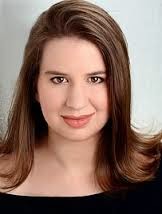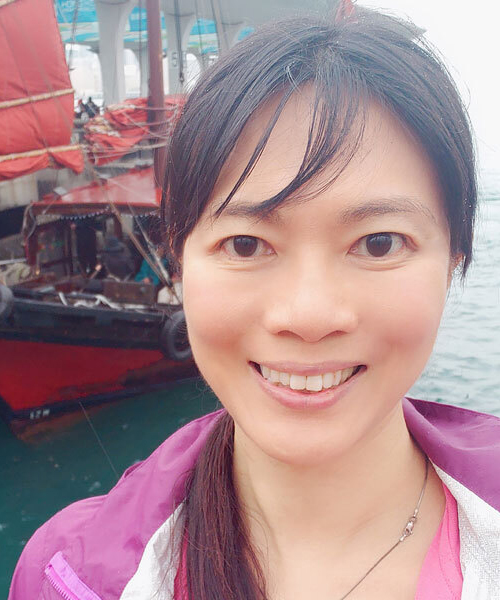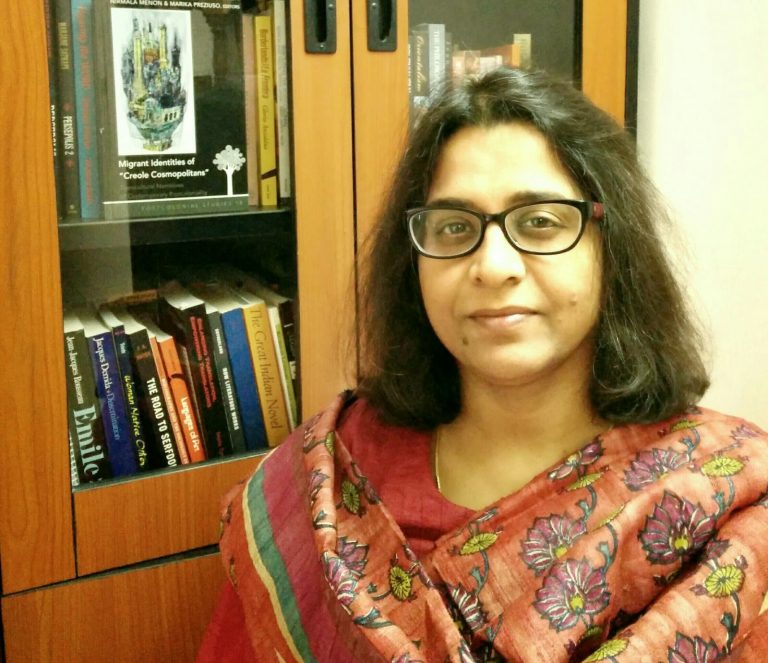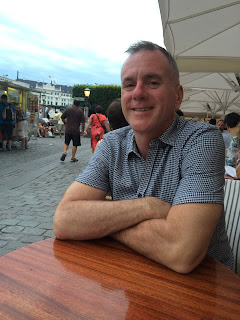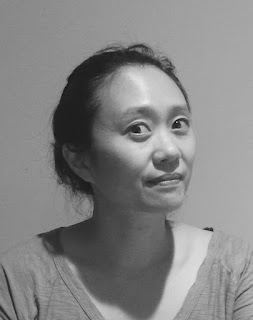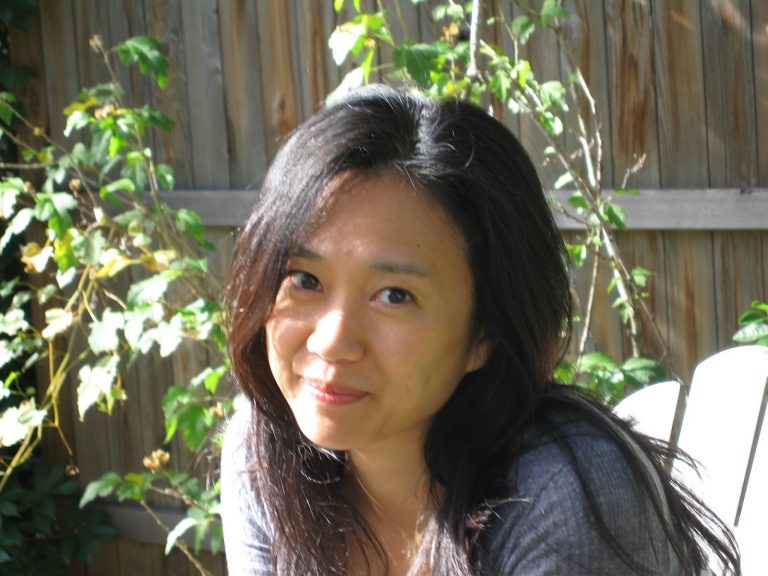Since Stephanie Gardner graduated from our department, she’s been a busy and prolific filmmaker based in New York City. (You can check out her website
here.) We talked to her about film, literature, and her GW English department experience.
You’re doing all sorts of exciting things with film, and we’ll get to that in a moment. First, though: Talk about your time in the GW English department. Favorite professors? Courses? Particular memories?
I have nothing but fond memories of my time in the GW English Department as a Creative Writing minor. Classes that stand out in my memory are Faye Moskowitz’s Fiction Writing course, which introduced me to the value of writing workshops and gave me confidence and insight into who I am as a writer. This was, perhaps, the early stage of discovering my “voice” as a writer, and Faye has been inspirational and encouraging to this always evolving journey. Jane Shore’s poetry class helped foster my love for poetry, which every so often I’ll dabble in; and Tony Lopez’s Critical Methods course was instrumental to who I am today as a person and artist. I wish I could have taken every class Professor Lopez had to offer. He ignited a passion for discourse and discovery in me that I will never lose. I sometimes go back and re-read some of the essays and theorists assigned in that class, and occasionally I still run crazy ideas by him.
Are there ways in which your literature courses here contributed to the sort of work you do in film? And in poetry?
Absolutely! My love and appreciation for literature, which largely came about during my time at GW, remains a huge influence on my work and outlook on life. Pieces of literature I was introduced to at GW that continue to influence my work include Roland Barthes’ essay on the “Death of The Author,” Dostoyevsky’s “Notes From Underground” and James Joyce’s collection of short stories, “Dubliners.” I’ve also always been a big fan of T.S. Eliot and his stream of consciousness language.
I must add that Holy Dugan’s Shakespeare course, which I took for a full year, had a huge impact on me and my understanding and appreciation for Shakespeare. I worked on a collaboration with The New York Shakespeare Exchange’s “The Sonnet Project,” which commissioned filmmakers to recreate each of Shakespeare’s Sonnets into short films. I directed Sonnet 151 and had a blast with it! I believe my interest in connecting with this group and making the film is largely due to the work I did in Professor Dugan’s Class.
Did your preparation in the department help in terms of your graduate work at the Tisch school? In what way?
My classes at GW gave me a strong foundation in literature and history. I was the youngest in my graduate class of eight writers. I came into the Graduate Dramatic Writing program with no prior experience in Screenwriting, one of the three focuses of the program, but made up for it by having a solid English and Literature background, and because of that, became the go-to-person for matters regarding literature and theater history. So much so that I distributed my notes from GW undergrad classes to my classmates in grad school, and it became a glossary of sorts for our small class, which we would reference from time to time to help with our understanding of play and film analysis.
You’ve recently directed a couple of short films with romantic themes. Could you tell us more about them?
The reason I keep coming back to romantically themed pieces, I believe, is because it is such a universal concept. Love and sex. This language is spoken and understood all across the world, no matter what your origin is. And if we can speak a common language, we can tap into so much more in terms of understanding others; their culture, their beliefs. My two most recent films, which are romantically bent, are: And If I Stay, a fourteen minute short, which I describe as a “dark, romantic drama,” and, If I Had A Piano (I’d Play You The Blues), (currently in post production), and which I describe as “an explorative romance in five movements.” This short art piece will end up being about five or six minutes long. It’s crazy how much effort we put into such short pieces, but I see it as a reflection of love and romance; sometimes the best moments in life are fleeting.
And If I Stay is a darker look into a romantic relationship. A young woman traveling abroad meets a mysterious man. What begins as a one night stand turns into a woman caught between the fantasy of this man and the reality of the relationship, which goes on for an ambiguous amount of time in the world of the film. As she continues to uncover darker and darker secrets about him, she continues to stay. Is it out of the thrill of it? Curiosity? Does she simply have nowhere else to go? I like to create work that offers more questions about human behavior than answers, which can sometimes be frustrating for audiences, but it’s how I operate. I believe if a film can stir up some questions and conflicting emotions, perhaps it will open a portal into the heart and mind of the viewer, open up questions they never knew they needed to ask themselves. After all, filmmaking is about the journey, and it is one meant to be shared between auteur and audience.
The cross-over between reality and fantasy is a common theme in my work. Every artist has an obsession and I guess you could say this one is mine. It is a theme I constantly return to and If I Had A PIano is the most recent attempt to capture this. One day, a thought popped into my head. “50% of life is lived for the fantasy,” and I sought to bring this idea to life in the form of an experimental short film. That is, desire drives us: all humans, on all levels of society have desires (some healthy, some not) and it is the fantasies that often keep us going through life, or bring a smile to our face when we escape into the fantasies in our mind. And cinema, for some, is a form of escape, which I think can be a beautiful way to temporarily live out fantasies and see desires erupt on screen in a nondestructive way. So my goal with If I Had A Piano is very different from And If I Stay. Instead of being focused on story and characters, I decided to focus on mood and sensuality.
Do you have any advice for our majors in terms of grad school, jobs, the creative life?
-
Don’t burn your bridges. This was advice given to my graduate school class early on and it has always stuck with me. It’s a small world out there, and the film and theater communities are even smaller. If you have to leave a project, part ways with dignity and humility. Pick your battles wisely.
-
When you find a person or group that you have a positive collaboration with, stick with them. It can be difficult to find the right chemistry between artists, but once you do, collaborations can be fun and effective.
-
Be proactive but don’t try to do everything yourself. Sometimes you have to wear many hats in order to get a project done. Especially on an independent, low budget scale. But remember what your hats are. Nobody is going to believe in your work as much as yourself, so if you don’t give it your all, nobody will, but remember what your specific strengths are. Continue to work on improving your skill set in any way possible and don’t be afraid to delegate tasks to others who are strong in other areas. Filmmaking, especially, is a collaborative medium. It is said “it takes a village,” so don’t try to wear every hat at once because the work will ultimately suffer for it. Of course, I say this and yet I am often writing, directing, and producing my own pieces, which is largely due to limited funds, but my directing suffers when I am wearing the producer hat. If I have to do it, however, I try to remember which hat I have on and which hat I should have on so that these inner personalities don’t come into conflict.
-
Absorb everything. The more you experience, the more you have to draw from and the more interesting your work can become. No matter what your profession, soak up the world. Really look, really listen. Don’t just go to a place so that you can say you’ve been there. Take yourself out of the picture and walk around with your eyes opened and your ears alert. Take snapshots in your mind and write down significant interactions or situations you observe, because you’ll always forget the details later. Try foods you never thought you’d try. If a door opens unexpectedly, walk through it and see what you encounter. Every experience, good and bad, makes you a more well rounded person, and it’s the ones you least expect that will change your life. This is cliche advice, but we have cliches for a reason.
What are some future projects you’d like to work on?
Currently, I’m directing a multi-media theater piece (what we’re calling an “educational interactive performance art exhibit”), The Day After MLK, which centers around the death of Malcolm X and the years to follow, culminating with the death of Martin Luther King, Jr. The show, produced by Unexpected Artistry, is through the eyes of three security guards for Malcolm X and takes the audience through the individual journeys of these three men, as they cope with the death of their leader and friend in the ever shifting Civil Rights Movement. This is an ongoing project, which is going up in April at the Shabazz Center in Harlem (the old Audubon Ballroom) at the site of Malcolm X’s assassination, and we hope to eventually take this show on the road and into classrooms across America.
I am also in the research stage of a series of short documentary projects. I am very interested in the history of Cuba and its current relationship status with America. I am trying to find an avenue to pursue some human interest stories that relate to current events in that region.
Ultimately, the goal is to make a feature film. This takes time, funds, and experience, so I will be taking my time with this endeavor. Each project is a stepping stone to the next; building portfolios and experience. I have already begun drafting a script for a feature film that I hope will become my feature directing debut. You guessed it, it’s a romance! In the meantime, I am also developing a feature script for fun, as an exercise to strengthen my writing, Sunday Before Buddha, which is an action thriller set in South Korea, based on some experiences I had traveling there during my time living in South East Asia.


